TUF Practices on practice on waste disposal
TUF Practices on practice on waste disposal
Organic Waste Treatment
Organic waste within the campus are refectory, canteen and cafés. The large amount of branch and leaf wastes generated as a result of pruning and maintenance processes. Separated Trash bins has been placed in different areas in the University to drop Plastic, paper, organic and general waste. Furthermore, the large amount of branch and leaf wastes generated as a result of pruning and maintenance processes of plants and trees. The university has its own cattle form, and all waste food and leaves are transferred to the cattle form and fed to the animals.
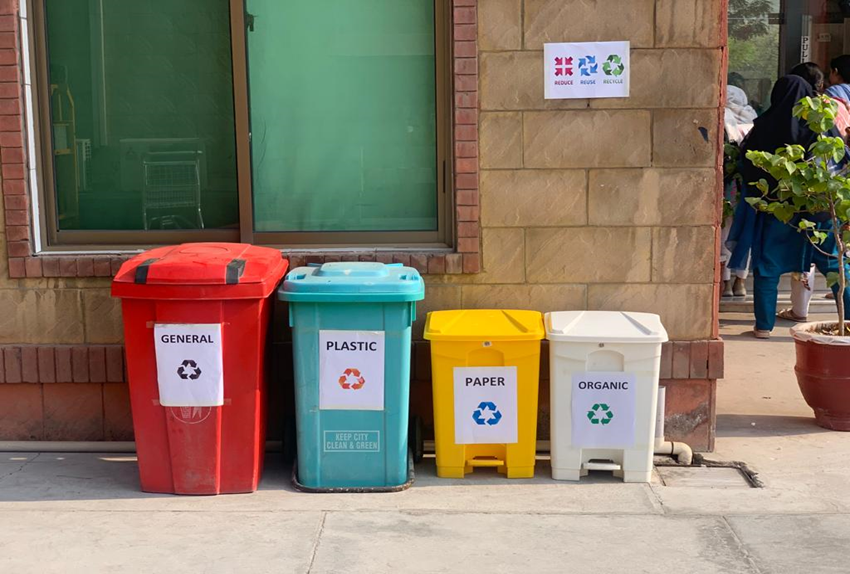
Segregated Trash Bins for Plastic, paper, organic and general waste to meet with Sustainable Campus Waste Management
Project to Utilize Organic Waste:
Carrot processing industries produce 25–30% of waste in the form of carrot peels, and pomace which contain a large amount of high-value bioactive components. project is initiated by Department of Dietetic and Nutritional Science. Purpose is to prevent food wastage resulting in carrot pomace waste. Project is implemented in the University cafeteria.
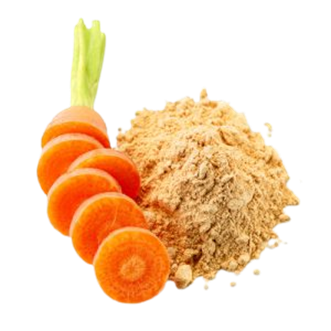

Natural urea forms during the decomposition of vegetable and fruit peels:
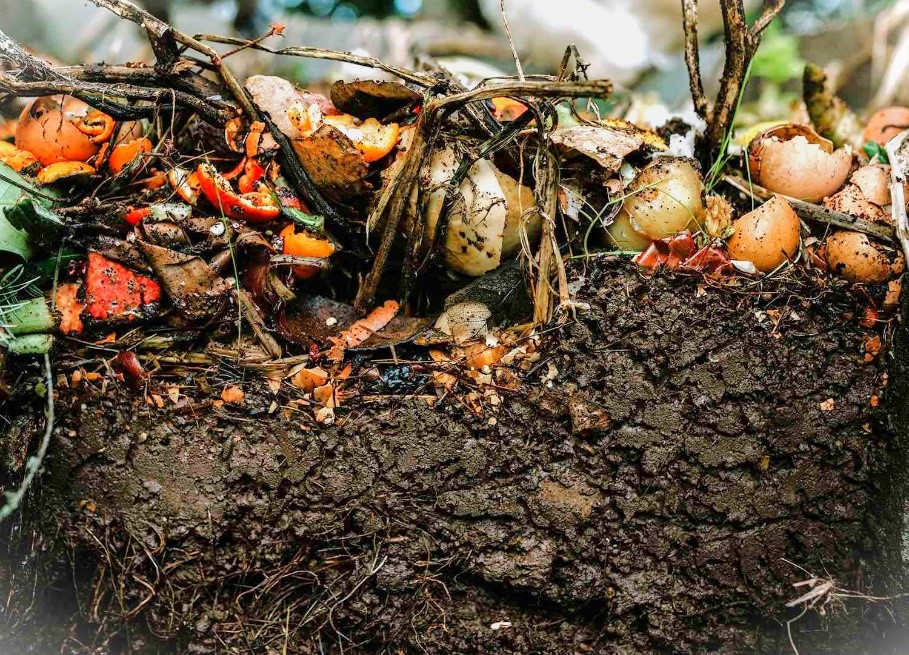
By composting vegetable and fruit peels in soil, University produced natural that is further use to fertilizer the plants
Inorganic Waste :
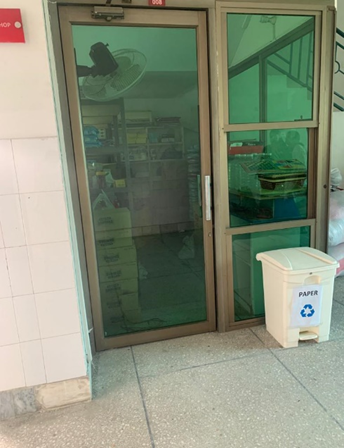
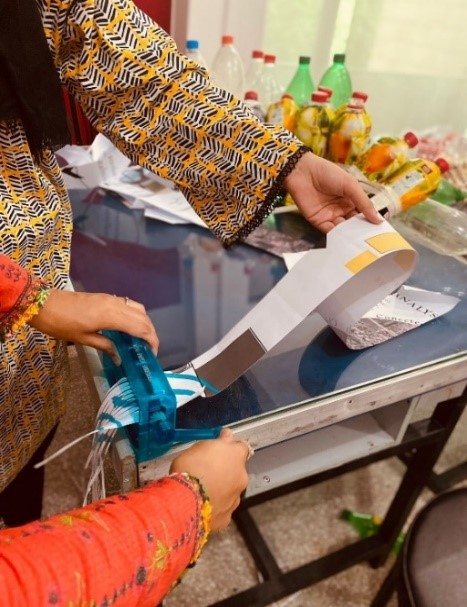
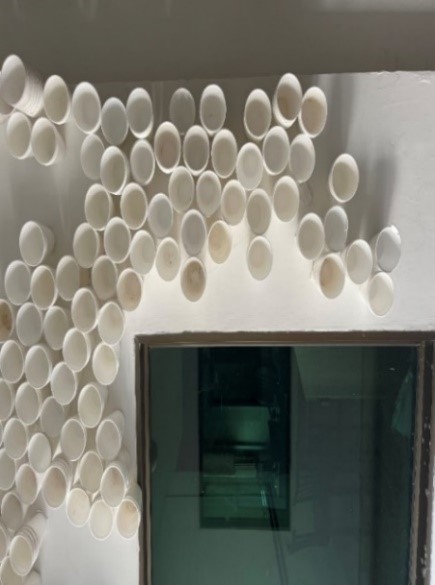
The Department of Civil Engineering retrieves non-organic construction and renovation waste for reuse. These materials are repurposed in laboratory experiments and industry collaborations, promoting sustainability and resource efficiency, while contributing to academic research and practical applications within the field of civil engineering.